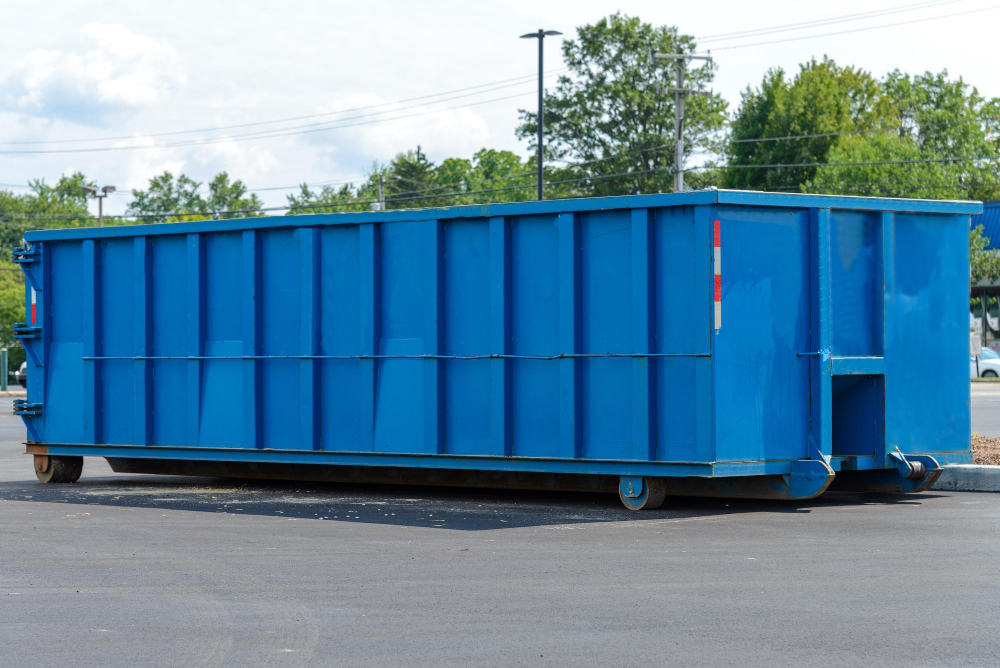


Whether you're tackling a home renovation, cleaning out your garage, or managing a construction project, waste disposal is a crucial consideration. Two popular options dominate the market: roll off containers and traditional dumpsters. While they might seem similar at first glance, these waste management solutions serve different purposes and offer distinct advantages.
Understanding the differences between these options can save you money, time, and frustration. The right choice depends on your project size, timeline, and specific needs. Let's explore the key characteristics of each option to help you make an informed decision for your next project.
Roll off containers are large, rectangular waste containers designed for temporary use. They feature an open top and are delivered to your location using specialized trucks equipped with hydraulic systems. The name "roll off" comes from the way these containers are loaded and unloaded—they literally roll off the truck bed onto the ground.
These containers come in various sizes, typically ranging from 10 to 40 cubic yards. The most common sizes include:
Roll off containers are typically rented for a specific period, usually 7 to 14 days, though extensions are often available for an additional fee.
Traditional dumpsters, also known as front-load or rear-load dumpsters, are permanent or long-term waste collection solutions. These containers are smaller than roll off containers, typically ranging from 2 to 8 cubic yards. They feature hinged lids and are designed for regular waste pickup services.
You'll commonly see traditional dumpsters behind restaurants, office buildings, and apartment complexes. They're serviced on a regular schedule—weekly, bi-weekly, or monthly—by waste management companies using specialized trucks with lifting mechanisms.
Key characteristics of traditional dumpsters include:
The most obvious difference between roll off containers and traditional dumpsters lies in their size and capacity. Roll off containers are significantly larger, making them suitable for projects that generate substantial amounts of waste in a short period.
Traditional dumpsters work best for ongoing waste generation. A restaurant might generate consistent amounts of waste daily, making a traditional dumpster with regular pickup service the logical choice. However, if that same restaurant underwent a major renovation, they'd likely need a roll off container to handle the construction debris.
Consider the volume of waste your project will generate. Home renovations, construction projects, and large cleanouts typically produce more waste than regular daily activities, making roll off containers the better choice for these scenarios.
Timeline plays a crucial role in determining which option suits your needs. Roll off containers excel for short-term projects with defined start and end dates. You rent the container for a specific period, fill it at your own pace, and schedule pickup when you're finished.
Traditional dumpsters serve ongoing needs. If you're running a business that generates waste consistently, traditional dumpsters with regular service schedules make more sense than repeatedly renting roll off containers.
For Orlando, FL residents planning home improvement projects, roll off container rental typically offers more flexibility. You can keep the container as long as needed without worrying about weekly pickup schedules that might not align with your project timeline.
Pricing structures differ significantly between these two options. Roll off container rental in Orlando, FL, typically involves a flat fee that covers delivery, pickup, and disposal for a set period. Additional charges may apply for extended rental periods or exceeding weight limits.
Traditional dumpster services use subscription-based pricing with monthly fees and regular service schedules. While the monthly cost might seem lower, traditional dumpsters aren't cost-effective for one-time projects.
For temporary projects, roll off containers often provide better value because you pay only for what you need. There's no ongoing monthly commitment, and you're not paying for services you don't use.
Both options have restrictions on acceptable waste materials, but roll off containers typically offer more flexibility for construction and renovation debris. They can handle materials like:
Traditional dumpsters are designed for regular household or commercial waste and may have stricter limitations on construction materials or large items.
However, both options prohibit hazardous materials like paint, chemicals, batteries, and electronics. Always check with your waste management provider about specific restrictions and disposal requirements.
Roll off containers require adequate space for delivery and pickup. The delivery truck needs room to maneuver and place the container, which means considering driveway access, overhead clearances, and property lines.
Traditional dumpsters are typically placed in permanent locations with easy access for service trucks. They're designed to fit in smaller spaces and don't require the same delivery considerations as roll off containers.
For Orlando, FL properties with limited space, discuss placement options with your roll off container rental provider. They can advise on the best location considering truck access, local regulations, and your project needs.
Choosing between roll off containers and traditional dumpsters comes down to your specific situation. Roll off containers work best for:
Traditional dumpsters are ideal for:
Understanding the differences between roll off containers and traditional dumpsters empowers you to make the right choice for your project. Consider your waste volume, project timeline, budget, and space requirements when making your decision.
For most home improvement and construction projects, roll off containers provide the flexibility, capacity, and value you need to complete your work efficiently. They eliminate the stress of multiple trips to disposal facilities and provide a centralized location for all your project waste.
If you're looking for roll off container rental in Orlando, FL, contact Tip Top Containers today to request a quote. Our team can help you select the right container size and rental period for your specific project needs.